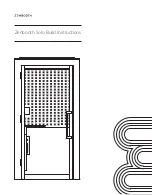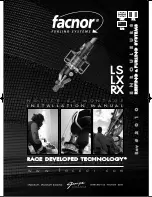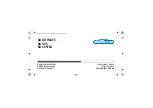
9
Subject to change without notice
I n s t a l l a t i o n a n d s a f e t y i n s t r u c t i o n s
fire and/or serious personal injury, and, in some cases, death.
Batteries and rechargeable batteries with alkaline electrolytes
(e.g. lithium cells) must be handled in accordance with the EN
62133 standard.
1. Cells must not be taken apart or crushed.
2. Cells or batteries must not be exposed to heat or fire.
Storage in direct sunlight must be avoided. Keep cells and
batteries clean and dry. Clean soiled connectors using a
dry, clean cloth.
3. Cells or batteries must not be short-circuited. Cells or
batteries must not be stored in a box or in a drawer where
they can short-circuit each other, or where they can be
short-circuited by other conductive materials. Cells and
batteries must not be removed from their original packaging
until they are ready to be used.
4. Keep cells and batteries out of the hands of children. If
a cell or a battery has been swallowed, seek medical aid
immediately.
5. Cells and batteries must not be exposed to any mechanical
shocks that are stronger than permitted.
6. If a cell develops a leak, the fluid must not be allowed to
come into contact with the skin or eyes. If contact occurs,
wash the affected area with plenty of water and seek medical
aid.
7. Improperly replacing or charging cells or batteries that
contain alkaline electrolytes (e.g. lithium cells) can cause
explosions. Replace cells or batteries only with the identical
type in order to ensure the safety of the product.
8. Cells and batteries must be recycled and kept separate from
residual waste. Rechargeable batteries and normal batteries
that contain lead, mercury or cadmium are hazardous waste.
Observe the national regulations regarding waste disposal
and recycling.










































